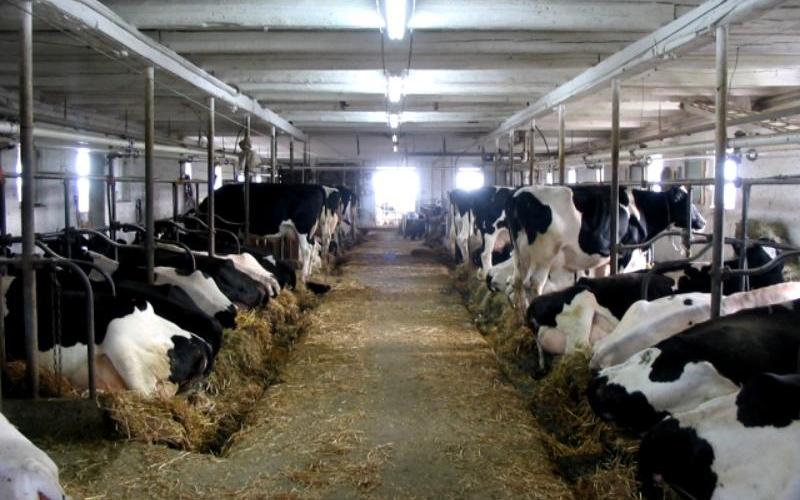Uruguay's Dairy Sector Backs Land Purchase Amidst Calls for Market Expansion
Sourse: es.edairynews.com
Uruguay’s dairy sector supports land acquisition for production, urging more public policies to stimulate national dairy farming.

The Uruguayan dairy sector has strongly endorsed the purchase of land in Florida by the National Institute of Colonization (INC) for dairy production. The Chamber of the Dairy Industry of Uruguay (CILU) not only approves the acquisition of the María Dolores estate but also calls on the government to implement more robust measures to encourage milk production and seek new international market openings.
This proposal underlines the need to strengthen the productive base and diversify commercial outlets in a competitive global context. The debate surrounding the purchase of the María Dolores estate, which sparked political controversy in Uruguay, was defended by the head of the Ministry of Livestock, Agriculture, and Fisheries, Alfredo Fratti. He argued that the acquisition is justified by its potential to establish dairy colonies for small producers in Florida, countering claims that it benefits large landowners. This focus on the settlement of small producers aligns with the industry's interest in maintaining and expanding the country's productive base.
CILU’s executive secretary, Ariel Londinsky, emphasized the association's support for the INC’s acquisition. “When there are state policies that promote dairy production, the participation of new producers, and their settlement in rural areas, we will agree,” he stated. Londinsky noted the importance of backing current producers to maintain activity and ideally attract new players. Moreover, he highlighted this strategy as a solution to the productivity plateau that the sector has faced for over five years, a concern for dairy industry analysts. Beyond supporting Colonization, CILU focuses on the urgent need to address the decrease in the number of dairy farms in Uruguay.
Although total production has remained steady, Londinsky pointed out that consolidation within the dairy sector is occurring, with smaller and medium-sized producers exiting due to low profit margins. Therefore, CILU calls for prioritizing state policies to support small and medium producers and ensure their survival, given the importance of dairy farming in rural development and job creation. Finally, Londinsky mentioned that despite internal challenges such as low prices and drought, the international context has prevented a worse scenario. In this regard, he stressed that “an important element for the dairy chain would be opening markets” that allow Uruguay to compete on better terms. This measure is crucial to fostering the production and development of the Uruguayan dairy sector, ensuring its long-term sustainability, and strengthening its position in the global dairy market.
This proposal underlines the need to strengthen the productive base and diversify commercial outlets in a competitive global context. The debate surrounding the purchase of the María Dolores estate, which sparked political controversy in Uruguay, was defended by the head of the Ministry of Livestock, Agriculture, and Fisheries, Alfredo Fratti. He argued that the acquisition is justified by its potential to establish dairy colonies for small producers in Florida, countering claims that it benefits large landowners. This focus on the settlement of small producers aligns with the industry's interest in maintaining and expanding the country's productive base.
CILU’s executive secretary, Ariel Londinsky, emphasized the association's support for the INC’s acquisition. “When there are state policies that promote dairy production, the participation of new producers, and their settlement in rural areas, we will agree,” he stated. Londinsky noted the importance of backing current producers to maintain activity and ideally attract new players. Moreover, he highlighted this strategy as a solution to the productivity plateau that the sector has faced for over five years, a concern for dairy industry analysts. Beyond supporting Colonization, CILU focuses on the urgent need to address the decrease in the number of dairy farms in Uruguay.
Although total production has remained steady, Londinsky pointed out that consolidation within the dairy sector is occurring, with smaller and medium-sized producers exiting due to low profit margins. Therefore, CILU calls for prioritizing state policies to support small and medium producers and ensure their survival, given the importance of dairy farming in rural development and job creation. Finally, Londinsky mentioned that despite internal challenges such as low prices and drought, the international context has prevented a worse scenario. In this regard, he stressed that “an important element for the dairy chain would be opening markets” that allow Uruguay to compete on better terms. This measure is crucial to fostering the production and development of the Uruguayan dairy sector, ensuring its long-term sustainability, and strengthening its position in the global dairy market.
Key News of the Week











